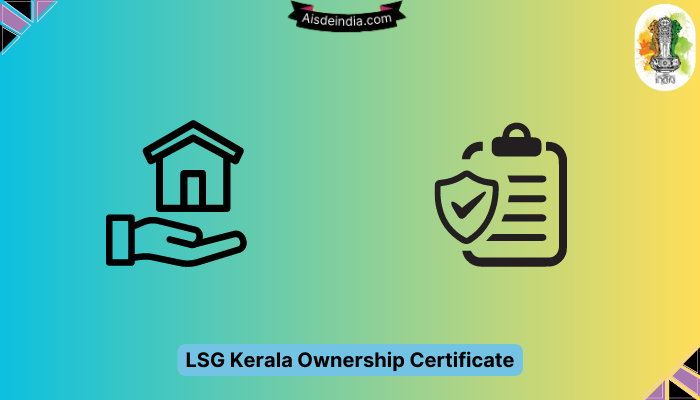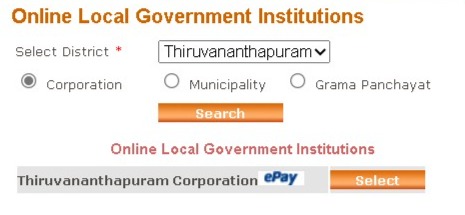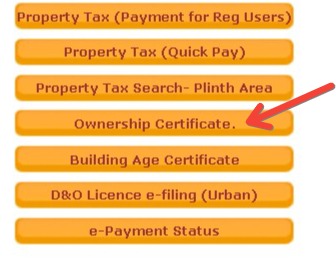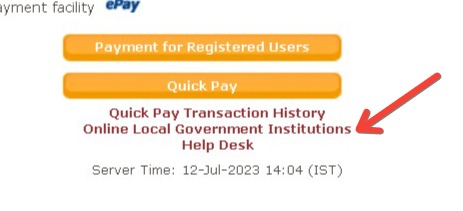An ownership certificate is a legal document that identifies a particular property’s owner. The certificate specifies essential details about the property owner to help prevent legal issues that may arise about the ownership of the property.
This document proves that the certificate holder has a legal claim to the property, thus, preventing encumbrances on the property.
Encumbrances on a property mean that someone else is claiming ownership of the property other than the original owner. An ownership certificate holder can deal with any encumbrances on the property, and the legal document protects the certificate holder’s rights to the property.
An ownership certificate is essential as it enables the property owner to carry out any transaction regarding their property without legal disputes.

The certificate holder will be free to rent, sell, lease, demolish, or renovate their property, knowing that their legal rights to the property are secure.
Therefore, applying for an ownership certificate in Kerala online is essential as it provides security to the property owner and safeguards against legal complications that may arise from ownership disputes.
What is an Ownership Certificate?
An ownership certificate is an essential legal document providing several benefits to the holder. It enables the owner to transfer the property to the next generations or family members quickly and conveniently.
This certificate plays a crucial role in ensuring the property rights of the certificate holder and allows them to fight against any legal disputes related to their properties.
Apart from these benefits, an ownership certificate also offers financial security to the certificate holder. This document allows them to secure their properties’ financing without legal issues.
Therefore, owning an ownership certificate is essential for those who wish to secure their property and safeguard their interests.
LSG ownership certificate Kerala – format
Depending on the issuing government authority, the ownership certificate format may vary in Kerala. Nevertheless, most certificates are structured similarly. Such certificates contain details of the property owner and important property-related information.
- The ownership certificate starts with the name of the original property owner. It signifies the person in whose name the property was initially registered. The certificate also lists the name of the property owner’s father or husband, which helps to establish a legal lineage.
- Next, the certificate lists the city or area of the property owner’s residence. It provides a quick and easy reference to the certificate holder’s location. The property registration number or plot number also appears in the certificate. This number uniquely identifies the property and is vital for legal proceedings.
- Another critical piece of information on the ownership certificate is the property’s total area. The property area is usually listed in square yards, providing an easy metric for real estate measurement. Furthermore, the certificate indicates the property’s location according to the survey number given by the department.
- The certificate also includes the property’s name or title. The name indicates whether the property is a house, land, or another asset. A crucial section of the certificate is the signature of the owner. It is the holder’s legal signature and denotes acceptance of the details in the certificate.
- Finally, the certificate is stamped with an official government stamp, ensuring its legality. The stamp’s purpose is to establish the authenticity of the document.
Benefits of LSG ownership certificate kerala:
As a property owner, the ownership certificate provides you with invaluable advantages. It acts as a protective shield against fraudulent activities that could potentially damage your assets. Moreover, having a legitimate ownership certificate means you have the absolute right to construct or demolish any structures on your property.
With an ownership document, leasing your property or obtaining a loan for further development is much more straightforward. In any legal disputes or court proceedings concerning your property, the certificate can be presented as robust evidence that safeguards your property rights.
An ownership certificate gives you the exclusive right to sell, transfer, or gift your property. With the security of the document’s legitimacy, you can confidently plan for your property’s future, even for the next generation.
The ownership certificate offers peace of mind and more opportunities to succeed against property fraud or disputes, making it an essential possession for any property owner.
How to Apply For LSG ownership certificate Kerala Online?
Acquiring an ownership certificate in Kerala has become easier with the help of online services provided by the Kerala government. The following steps will guide you on how to obtain this certificate online.
- First, visit the official Sanchaya portal of the Kerala government. The relevant section for obtaining an ownership certificate can be found on the right-hand side of the page. Here, you must select your district and the type of authority, such as a corporation, municipality, or gram panchayat. Click on the ‘Search’ option, and then select the authority that is relevant to you.

- Upon selection, you will be redirected to a page displaying all the e-services offered by the chosen authority. Look for the ‘Ownership Certificate’ option and click on it.

- Next, fill in the details on the ownership certificate page, such as the ward year and the ward/door/sub no. You will receive your ownership certificate without hassle once you have provided all the necessary information.
How To Download Ownership Certificate Kerala Online?
Are you in the process of obtaining an Ownership Certificate in Kerala? You’ll be pleased to know that downloading a copy of this document has become a whole lot easier! Simply follow the steps below, and you’ll be on your way to accessing the document in no time.
- Step one requires you to navigate the official portal. From there, proceed to the “Online Local Government Institutions” section.

- Next, select a division and click the search button. This will generate a list of institutions falling under that particular division.

- From the list, click on the “Select” button next to the institution that you are associated with. This will direct you to a page where you can access the “Ownership Certificate” button.
- Clicking on this button will take you to another page where you will be prompted to provide specific details related to the document you are interested in. These include your ward year and ward number.
- Once you have entered the correct details, click the “Search” button to generate the Ownership Certificate.
- To download the certificate, click the download button adjacent to the document. And that’s it – the document will now be available for you to use.
Documents Needed For Ownership Certificate Kerala Online:
Obtaining an ownership certificate in Kerala requires specific documentation and proofs that are mandatory for the process. The necessary records needed include:
- Identification Proof of the applicant:
- Aadhar card
- Voter identity card
- Driving license
- PAN card
- Bank passbook
- Passport copy
- Job identity card
- Residence proof of the applicant:
- Ration card
- Aadhar card
- Telephone bill
- Gas bill
- Power bill
- Passport copy
- Voter identity card
- Water bill
- House tax copy
- Additional Requirements:
- A copy of the registration of the property (Land/House)
- A survey report of the property
- A resurvey report if any changes were made
- A copy of the encumbrance certificate.
Ensure you have all these documents to acquire your ownership certificate in Kerala.
Frequently asked questions:
Proof of ownership typically refers to documents such as property deeds, ownership certificates, or bills of sale, which are primary evidence of ownership. These documents are crucial until the deed is notarized.
The Ownership Certificate fee in Kerala varies based on property size and location. Generally, the fee ranges from Rs. 20 to Rs. 1000.
For the exact fee. You should inquire with the Village Office or Taluk Office where you plan to apply for the certificate.
While obtaining an Ownership Certificate in Kerala is not legally mandatory, it is highly recommended.
The certificate serves as concrete proof of ownership and can help prevent potential legal disputes in the future.
Additionally, certain government agencies may require an Ownership Certificate to obtain building permits or bank loans.
Wrapping up:
In conclusion, it is important to understand the distinction between a possession certificate and an ownership certificate. While the possession certificate signifies the change in ownership and is issued by the new buyer, the ownership certificate provides detailed information about the actual owner of the property.
The registration and stamp department is responsible for issuing the encumbrance certificate, and it is essential to familiarize oneself with the application process as it varies between states. Obtaining an ownership certificate can facilitate the smooth transfer of ownership to another individual.
Furthermore, in any dispute regarding property rights, the law always upholds the validity and importance of the ownership certificate.
